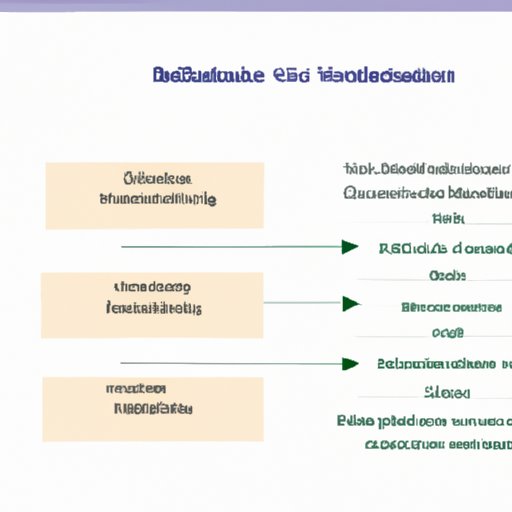Introduction
In the world of science, there are many terms and concepts that can be confusing for those who are not familiar with them. One such concept is the independent variable, which is a key component of scientific research and experiments. In this article, we will explore what an independent variable is, its role in scientific research, and how it can be used to measure the impact on results.

The Role of Independent Variables in Scientific Research
An independent variable is a variable that is manipulated or changed during a scientific experiment in order to observe its effects on the dependent variable. The independent variable is the one that is changed by the researcher, while the dependent variable is the one that is affected by the changes made in the independent variable.
For example, in an experiment to investigate the effect of temperature on the rate of photosynthesis, the independent variable would be the temperature and the dependent variable would be the rate of photosynthesis. In this experiment, the researcher would change the temperature of the environment and then measure the rate of photosynthesis at each temperature to see how it is affected.
Significance of Independent Variables in Scientific Experiments
Independent variables are essential for conducting scientific research because they enable researchers to test hypotheses and draw conclusions about the effects of certain variables on the results. By carefully manipulating the independent variable and measuring the resulting changes in the dependent variable, scientists can better understand the relationship between the two variables and how they interact.
Independent variables also allow researchers to control for other variables that could potentially influence the outcome of the experiment. For example, if a researcher wanted to study the effect of temperature on plant growth, he or she could use an independent variable such as light intensity to control for the effects of light on plant growth.
Some common examples of independent variables used in scientific experiments include temperature, light intensity, time, pH, pressure, concentration, amount of water, and air quality. Each of these variables can be manipulated to observe their effects on the dependent variable.

Investigating How Independent Variables Impact Scientific Results
When conducting scientific experiments, it is important to consider the potential impact of independent variables on the results. Factors such as the type of independent variable used, the range of values tested, and the accuracy of the measurements all play a role in determining the accuracy of the results.
In order to measure the impact of independent variables on the results of an experiment, researchers must first identify the independent variables that are likely to have an effect on the results. Once these variables have been identified, the researcher can manipulate each one individually and measure the resulting changes in the dependent variable. This process can help researchers determine which variables have the greatest impact on the results.
Researchers also need to consider the accuracy of the measurements when analyzing the results of an experiment. If the measurements are inaccurate, then the results may not be reliable. Therefore, it is important for researchers to use accurate instruments and take multiple measurements to ensure that the data is accurate.
Conclusion
Overall, independent variables are essential components of scientific research and experiments. They allow researchers to manipulate specific variables in order to observe the effects on the results. Furthermore, understanding the impact of independent variables on the results can help researchers draw more accurate conclusions from their experiments.
(Note: Is this article not meeting your expectations? Do you have knowledge or insights to share? Unlock new opportunities and expand your reach by joining our authors team. Click Registration to join us and share your expertise with our readers.)
